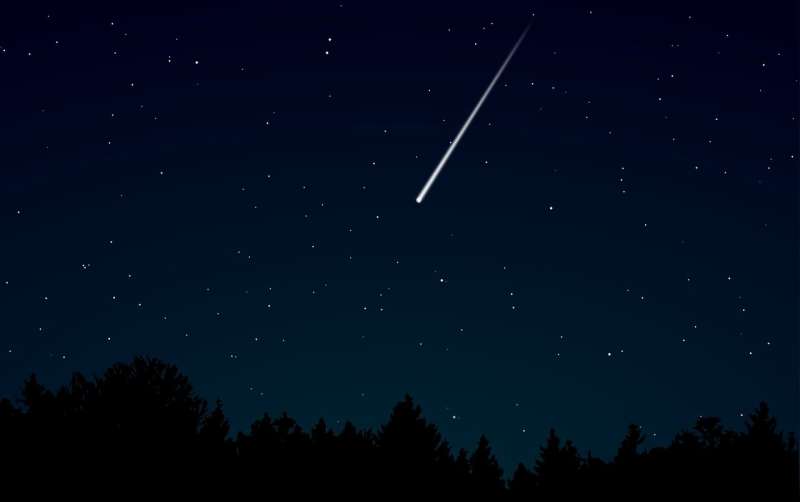Meteor shower, supermoon will brighten Thursday's night sky—but that's a problem

Those who enjoy watching the skies will see two events later this week collide: A supermoon will compete with the Perseid meteor shower to light the night.
The Perseid meteor shower will peak on Thursday night into the early hours of Friday, according to the American Meteor Society, though it has been active for weeks with star-gazers spotting Perseids as early as late July.
Meteor activity will continue to increase leading up to Thursday, and its peak will coincide with a full supermoon. The moon will rise as the sun sets Thursday and its light will wash out many of the dimmer meteors, significantly reducing the number of shooting stars to 10 to 20 per hour "at best," according to NASA.
This will be the last supermoon of this year's trilogy; the last two were in June and July. It's expected to look bigger and brighter than the regular moon and will not be seen again until July 2023.
"Despite the full moon in the sky during the night of maximum activity, meteor rates will still be better than 95% of all other nights this year," the AMS said. "The more stars you can see, the more meteors will also be visible. No matter the time of night, Perseid meteors can be seen in all portions of the sky."
For the best chances, watchers should look at darker areas of the sky without the moon in sight.
According to Accuweather, people anticipate the Perseids not only because of the 60 to 100 meteors per hour that it brings, but the fact that it peaks in late summer. The mild August nights have a higher chance of cloud-free conditions than the winter and spring nights when it is colder and often cloudier.
The best weather conditions for watching the Perseids and the supermoon are predicted across much of the West Coast, the central Plains and around the Great Lakes.
Accuweather forecast some clouds then sunshine during the day on Thursday, with the temperature topping at 81 degrees in Detroit. During the evening, the sky is expected to be clear with temperatures dropping to 57 degrees.
After the Perseids pass, the next moderate meteor shower will not take place until late October. The mid-autumn Orionids do not produce nearly as many shooting stars as the Perseids, but it is still one of the best meteor showers in the fall.
2022 detroitnews.com.
Distributed by Tribune Content Agency, LLC



















